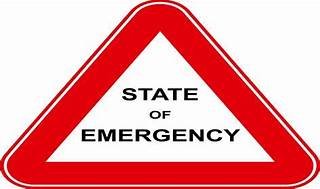 หน้าหลัก
ค้นหา"ภาวะฉุกเฉิน"
ข้อมูลเกี่ยวกับ"ภาวะฉุกเฉิน"
หน้าหลัก
ค้นหา"ภาวะฉุกเฉิน"
ข้อมูลเกี่ยวกับ"ภาวะฉุกเฉิน"

| 1 | ภาวะฉุกเฉิน คืออะไร มีหลายความหมาย ขึ้นอยู่กับบริบทและการใช้งาน ตามผลการค้นหาบนเว็บ ความหมายของภาวะฉุกเฉิน สามารถแบ่งได้ดังนี้
|
| 2 | A state of emergency is a situation in which a government has the power to take actions that it normally cannot do, for the safety and protection of its citizens. A government can declare a state of emergency when there is a natural disaster, civil unrest, armed conflict, medical pandemic or epidemic or other biosecurity risk. For example, a state of emergency was declared in Thailand in 2020 due to the COVID-19 outbreak. During a state of emergency, some rights and freedoms may be suspended or limited, depending on the severity of the situation and the government’s policies. For example, a government may impose curfews, lockdowns, travel bans, censorship, or martial law. However, any measures taken by the government must be only to the extent required by the situation, and must be announced to the public and the international community. A state of emergency can have different effects on different people and groups. Some may support the government’s actions and follow the rules, while others may oppose them and protest or resist. Some may benefit from the government’s assistance and protection, while others may suffer from the loss of their rights and freedoms. Some may feel safe and secure, while others may feel scared and anxious. A state of emergency can also have social and economic impacts, as it can affect people’s livelihoods, businesses, education, health, and well-being. |